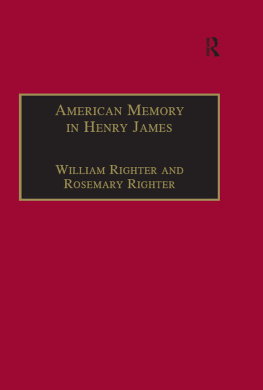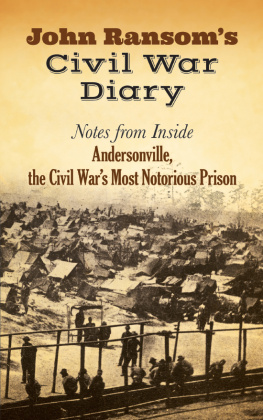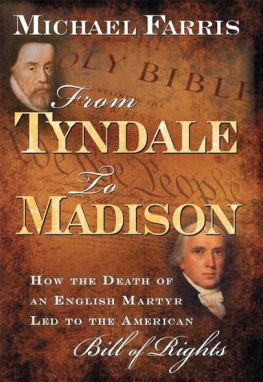James Madison Page
The True Story of Andersonville Prison: A Defense of Major Henry Wirz
The Prisoners and Their Keepers, Daily Life at Prison, Execution of the Raiders, the Facts of Wirz's Life, the Accusations Against Wirz, the Trial
Madison & Adams Press, 2017.
Contact:
ISBN 978-80-268-8148-3
This is a publication of Madison & Adams Press. Our production consists of thoroughly prepared educational & informative editions: Advice & How-To Books, Encyclopedias, Law Anthologies, Declassified Documents, Legal & Criminal Files, Historical Books, Scientific & Medical Publications, Technical Handbooks and Manuals. All our publications are meticulously edited and formatted to the highest digital standard. The main goal of Madison & Adams Press is to make all informative books and records accessible to everyone in a high quality digital and print form.
Preface
During the past forty years I have read a number of stories of Andersonville Prison and of Major Wirz, who had subordinate charge of the prisoners there. Nearly all these histories were written by comrades who were confined there as prisoners of war. I do not propose in this work to question the accuracy of their portrayal of the great suffering, privations, and of the mortality of prisoners of war in Andersonville, for these are matters of fact that any one who was confined there can readily corroborate and can never forget. But it has been painful to me since the day I marched from that dismal prison pen, September 20, 1864, to the present time, that my comrades who suffered there and who have written their experiences are to a man wild in their charges that Major Wirz was responsible and that he was the sole cause of the suffering and mortality endured at Andersonville.
I have finally concluded to write something of my experiences in Southern prisons during the Civil War, not in a spirit of controversy, but in the interest of truth and fair play.
I was a prisoner in different places in the South from September 21, 1863, till November 21, 1864, seven months of which I was at Andersonville.
The story of Andersonville has been already too often written for the mutual welfare of North and South, for the story as written has tended to increase the friction between the two great sections of our country. This is to be deplored, since every lover of his country desires, to the extent of his power, to allay all sectional bitterness.
The main purpose of the writer of this book is to reduce the friction between the two sections opposed to each other in the Civil War, and especially that caused by the exaggerated and often unjust reports of Major Wirz's cruelty and inhumanity to the Union prisoners, reports throughout the North at least, which have been represented to be gratuitous and wilful.
I am writing, not for the purpose of contradicting any comrade who has written before me, but to take a like liberty and to tell the story again from the standpoint of my own personal experience.
Taps will soon sound for us all who passed through those experiences, and I am sure that I shall feel better satisfied, as I pass down to the valley of death, if I say what I can truthfully say in defense of the man who befriended me when I was in the greatest extremity, and when there was no other recourse.
At the close of the war the feeling was so intense in the North on account of the suffering and mortality among the prisoners of war at Andersonville that something had to be done to satisfy the popular demand for the punishment of those supposed to be responsible for that suffering and the loss of life among the prisoners, and Major Wirz was doomed, before he was tried, as the party responsible for these results.
In my prison life of seven months at Andersonville I became well acquainted with Major Wirz, or Captain Wirz, as he then ranked, and as he will hereafter be designated.
The knowledge I gained of his character during this personal acquaintance leads me to disagree with the conclusions reached by other writers as to the true character of this unfortunate man. During all these years it has been a matter of surprise to me that writers like Richardson, Spencer, Urban, and others failed to take into consideration the fact that Captain Wirz was but a subordinate under Gen. John H. Winder, who was the prison commander. Captain Wirz had charge only of the interior of the stockade, and in every way-he was subject to the orders of his superior officer
Nearly all these writers were soldiers, and should have known that obedience to superiors was imperative, and hence if there were fault or error in orders or in their execution it was to be charged against the superior and not the subordinate.
In this work I shall take the stand not only that Captain Wirz was unjustly held responsible for the hardship and mortality of Andersonville, but that the Federal authorities must share the blame for these things with the Confederate, since they well knew the inability of the Confederates to meet the reasonable wants of their prisoners of war, as they lacked a supply of their own needs, and since the Federal authorities failed to exercise a humane policy in the exchange of those captured in battle.
The reader may expect in this account only the plain, unvarnished tale of a soldier. The writer, "with malice toward none and charity for all," denies conscious prejudice, and makes the sincere endeavor to put himself in the other fellow's place and make such a statement of the matter in hand as will satisfy all lovers of truth and justice.
My First Soldiering
I was born in Crawford County, Pennsylvania, July 22, 1839, the youngest of the five children of Wallace and Nancy Bonney Page. My parents were natives of Massachusetts, the former born in 1810 and the latter in 1816, and they were married on April 18, 1832, at Ellington, Chautauqua County, New York. My father's paternal grandfather was a soldier in the War of the Revolution, and the maternal grandfather of my mother was a soldier at the same time. Both were "Continentals" in the "Massachusetts Line," and both were honorably mustered out of service, a matter that has been a source of pardonable pride to their descendants.
The reader will pardon me for intruding these facts and also some succeeding ones relating to my ancestors and' their descendants, but my purpose is to show how thoroughly "Yankee" I am in ancestry, birth, education, and environment. I never was as far south as Pittsburg, Pennsylvania, until I was a Union soldier on my way South.
My parents had five children: Elvira, Wallace Robert, Elmina, Rodney Walter, and myself, I being the youngest, We are all living, and have been for years residents of Pageville, Madison County, Montana.
In 1840 my father died when I was but one year old, and when I was thirteen my good mother died.
Soon after my father's death we removed to Michigan, where I received a good common school education and later I took a course at Eastman's business college at Chicago. I had a keen taste for mathematics, and would at any time much rather encounter the most difficult problem in trigonometry than place myself between the handles of a plow.
When the war broke out in 1861 I was engaged in extending the public surveys in northwestern Minnesota, east of the now flourishing city of Morehead. At that time that portion of our Uncle-Samuel-land was "way out west," and as the region was sparsely settled I was very busy. My calling was a lucrative one, and being far from "the bustling throng and the busy haunts of men" I scarcely heard anything about the "impending conflict."











